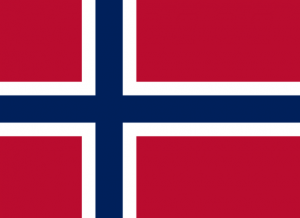Language/Norwegian-bokmal/Vocabulary/Synonyms-and-antonyms
Introduction[edit | edit source]
In this lesson, we will explore the fascinating world of synonyms and antonyms in the Norwegian Bokmål language. As language learners, it is important to expand our vocabulary and learn different ways to express ourselves. Synonyms and antonyms play a crucial role in enriching our language skills and understanding the nuances of communication. By learning synonyms, we can enhance our ability to choose the most suitable words for a particular context, while antonyms help us understand the opposite meanings of words. This lesson will provide you with a comprehensive understanding of synonyms and antonyms in Norwegian Bokmål, and equip you with a diverse range of vocabulary to express yourself effectively.
Synonyms[edit | edit source]
Synonyms are words that have similar or identical meanings. They are an essential part of the language, allowing us to express ourselves in a more versatile and nuanced way. Let's explore some common synonyms in Norwegian Bokmål:
Synonyms for "happy"[edit | edit source]
| Norwegian Bokmål | Pronunciation | English Translation |
|---|---|---|
| glad | glahd | happy |
| fornøyd | for-nuhd | satisfied |
| lykkelig | look-keh-lee | joyful |
| begeistret | bey-geist-ret | excited |
| opprømt | oh-prohmt | thrilled |
As you can see from the examples above, each word conveys the general meaning "happy," but they also have their own unique nuances. "Glad" is a commonly used word for expressing happiness, while "fornøyd" carries a sense of contentment. "Lykkelig" emphasizes a deep sense of joy, while "begeistret" and "opprømt" convey excitement and thrill.
Synonyms for "big"[edit | edit source]
| Norwegian Bokmål | Pronunciation | English Translation |
|---|---|---|
| stor | stor | big |
| storartet | stor-ahr-tet | magnificent |
| mektig | mek-teeh | powerful |
| kjempestor | yem-peh-stor | enormous |
| kolossal | ko-los-sal | colossal |
In the above table, we can see different synonyms for the word "big." While "stor" is the most common and general word for "big," "storartet" and "mektig" convey a sense of greatness and power. "Kjempestor" and "kolossal" emphasize the magnitude and enormity of the object.
Antonyms[edit | edit source]
Antonyms are words that have opposite meanings. They provide us with a way to express contrast and highlight differences. Let's explore some common antonyms in Norwegian Bokmål:
Antonyms for "hot"[edit | edit source]
| Norwegian Bokmål | Pronunciation | English Translation |
|---|---|---|
| kald | kahld | cold |
| kjølig | kyo-lee | cool |
| iskald | ees-kahld | icy cold |
| frostig | fros-teeh | frosty |
| nedkjølt | ned-kyolt | chilled |
The above table presents antonyms for the word "hot." "Kald" is the direct opposite of "hot" and means "cold." "Kjølig" and "iskald" both express cooler temperatures, but "iskald" specifically refers to icy cold. "Frostig" and "nedkjølt" also convey a sense of coldness.
Antonyms for "happy"[edit | edit source]
| Norwegian Bokmål | Pronunciation | English Translation |
|---|---|---|
| trist | trist | sad |
| lei seg | lay seh | upset |
| deprimert | deh-pri-mert | depressed |
| ulykkelig | ool-ook-keh-lee | unhappy |
| mismodig | mees-mo-dee | gloomy |
The table above presents antonyms for the word "happy." "Trist" is the direct opposite, meaning "sad." "Lei seg" and "deprimert" express a deeper level of sadness and unhappiness. "Ulykkelig" and "mismodig" convey a sense of general unhappiness and gloominess.
Cultural Insight[edit | edit source]
Norwegian Bokmål vocabulary is influenced by cultural, historical, and regional factors. It is interesting to note that certain synonyms and antonyms may vary in usage and popularity across different regions of Norway. For example, in the western region of Norway, the word "glad" is commonly used to express happiness, while in the eastern region, "fornøyd" is more prevalent. These regional variations add richness and diversity to the Norwegian Bokmål vocabulary.
Norwegian culture places great value on nature and the outdoors. This is reflected in the language, with many synonyms and antonyms related to weather conditions and natural elements. For example, words like "lykkelig" and "opprømt" are often used to describe the joy and excitement experienced during outdoor activities like hiking and skiing.
Norwegian Bokmål vocabulary also reflects the country's rich literary heritage. Many synonyms and antonyms have been influenced by famous Norwegian authors such as Henrik Ibsen and Knut Hamsun. Exploring these literary connections can deepen your understanding of the Norwegian Bokmål language and its cultural significance.
Practice Exercises[edit | edit source]
Now, it's time to put your knowledge of synonyms and antonyms into practice. Complete the following exercises to enhance your understanding:
Exercise 1: Synonyms Identify the synonyms for the following words:
1. "beautiful" 2. "fast" 3. "small" 4. "angry" 5. "tired"
Solution: 1. "vakker," "nydelig," "pen" 2. "rask," "hurtig," "kvikk" 3. "liten," "liten," "liten" 4. "sint," "rasende," "forbannet" 5. "trett," "sliten," "utslitt"
Exercise 2: Antonyms Identify the antonyms for the following words:
1. "old" 2. "dark" 3. "soft" 4. "happy" 5. "open"
Solution: 1. "ung," "ny," "fersk" 2. "lys," "lys," "lys" 3. "hard," "stiv," "tøff" 4. "trist," "lei seg," "ulykkelig" 5. "lukket," "stengt," "sperret"
Conclusion[edit | edit source]
Congratulations on completing this lesson on synonyms and antonyms in Norwegian Bokmål! By expanding your vocabulary with synonyms, you can express yourself in a more nuanced and versatile way. Antonyms, on the other hand, allow you to highlight contrasts and differences in meaning. Understanding synonyms and antonyms will greatly enhance your language skills and make your communication more effective. Keep practicing and exploring the diverse world of Norwegian Bokmål vocabulary!
Other Lessons[edit | edit source]
- Asking Directions
- Days of the Week
- How to Say Hello and Greetings
- Seasons
- Useful Sentenses
- Engineering and technical jargon
- Vegetables
- Colors
- Birthday
- Dances

